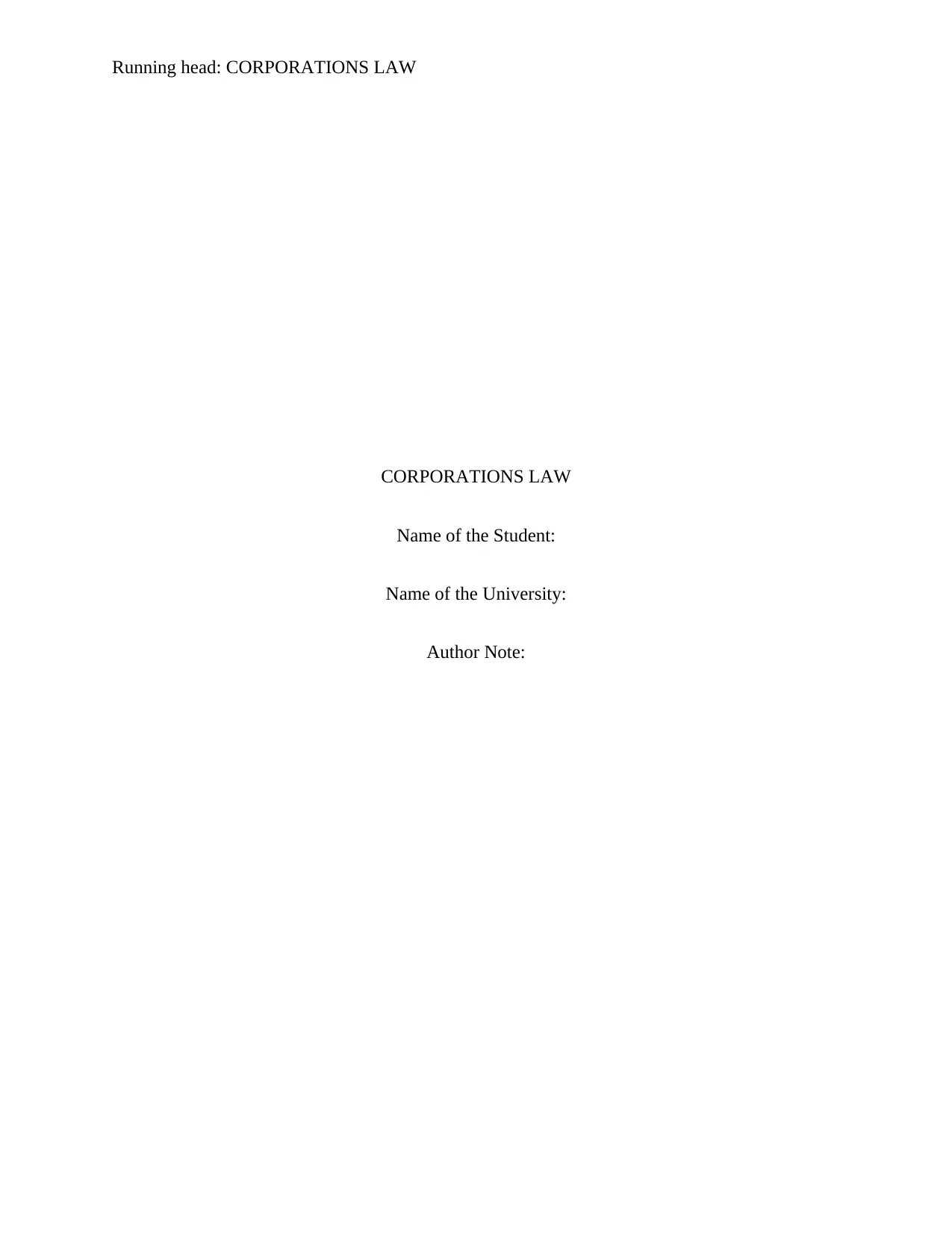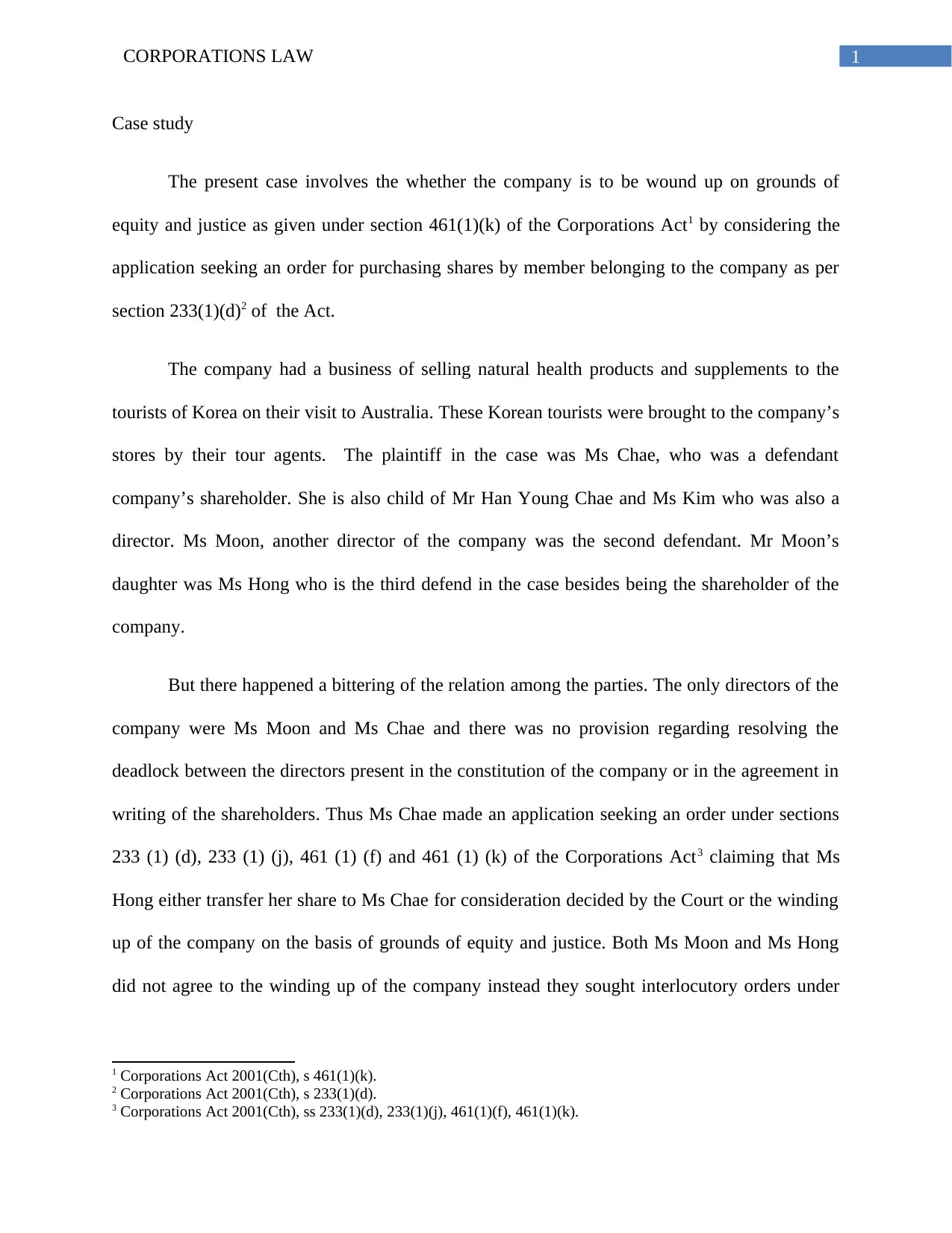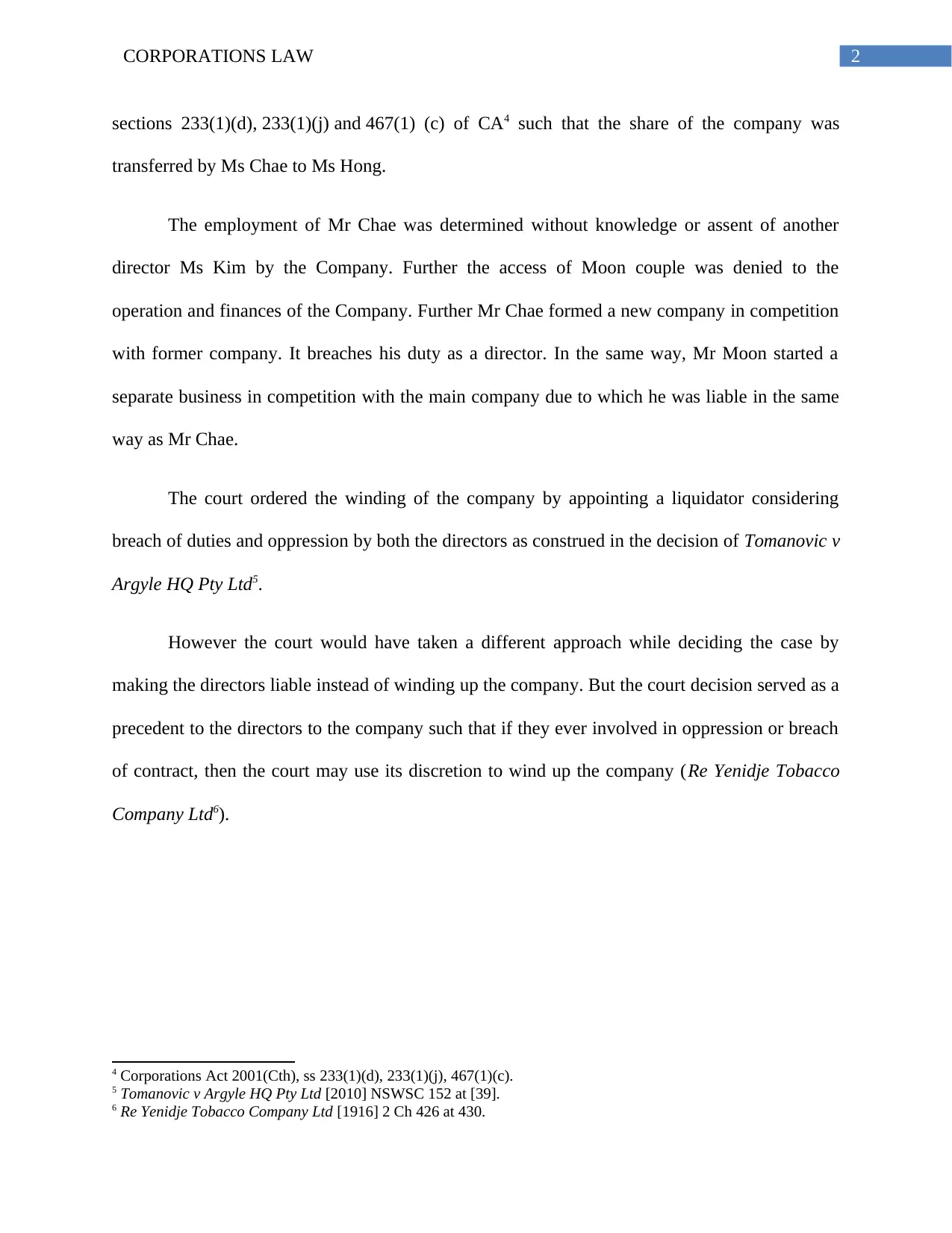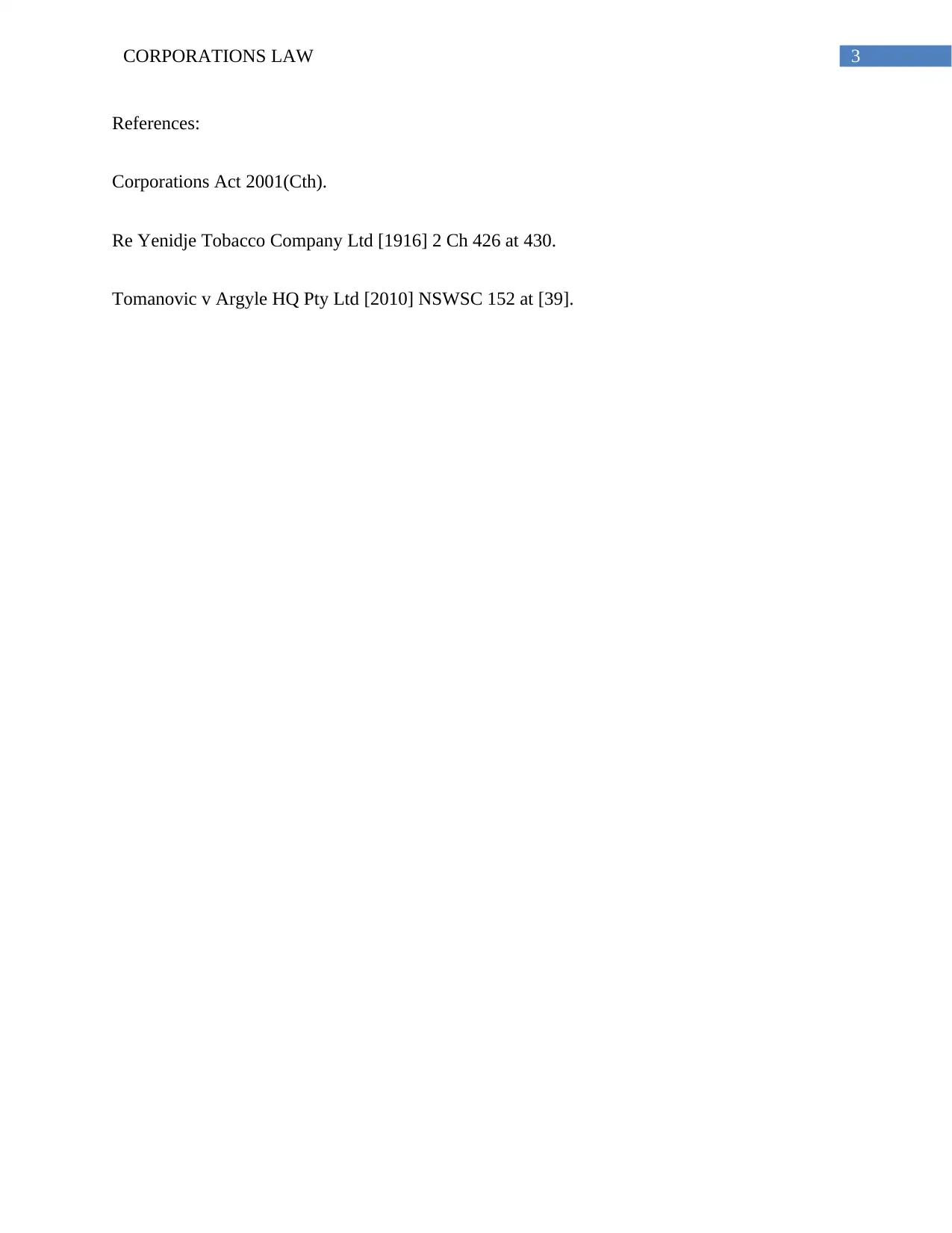Case Study Analysis: Pure Nature Sydney Pty Ltd, Corporations Act
VerifiedAdded on 2022/12/29
|4
|782
|99
Case Study
AI Summary
This case study analyzes the legal dispute in the matter of Pure Nature Sydney Pty Ltd [2018] NSWSC 914, focusing on the application of the Corporations Act 2001 (Cth). The case involves a conflict between shareholders and directors, leading to allegations of oppression and a demand for winding up the company. Ms. Chae, a shareholder, sought orders for share purchase or winding up, citing breaches of director duties and deadlock within the company. The court considered issues of oppression under s 233(1)(d) and the just and equitable ground for winding up under s 461(1)(k). The judgment highlights the breakdown of relations and the court's discretion in ordering a winding up, appointing a liquidator due to breaches of duty and oppressive conduct by the directors. The case serves as a precedent for directors regarding their responsibilities and the potential consequences of oppressive behavior or breach of contract within a company. The court ordered the winding of the company by appointing a liquidator considering breach of duties and oppression by both the directors as construed in the decision of Tomanovic v Argyle HQ Pty Ltd.
1 out of 4






![Case Study Analysis: Pure Nature Sydney Pty Ltd [2018] NSWSC 914](/_next/image/?url=https%3A%2F%2Fdesklib.com%2Fmedia%2Fimages%2Fft%2F774f15a31ea24760bdd22a18ac9048e5.jpg&w=256&q=75)

![Business Law Case Study: Pure Nature Sydney Pty Ltd [2018] NSWSC 914](/_next/image/?url=https%3A%2F%2Fdesklib.com%2Fmedia%2Fimages%2Fqc%2F49a21ba8dfd3454690f3a6c3e7bd227c.jpg&w=256&q=75)
![Business Law Case Study on Pure Nature Sydney Pty Ltd [NSWSC 914]](/_next/image/?url=https%3A%2F%2Fdesklib.com%2Fmedia%2Fimages%2Fzz%2F427abd4eebc344ee9f711d4d4244e03b.jpg&w=256&q=75)

![[object Object]](/_next/static/media/star-bottom.7253800d.svg)